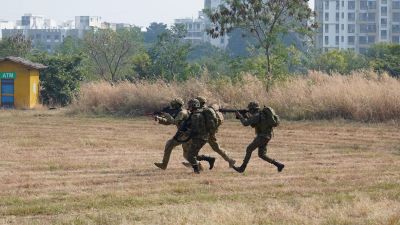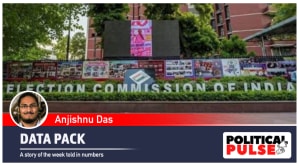Nepal deadlock: UN chief threatens to end political mission
UN would consider withdrawal if Nepal did not quickly form a government.
UN chief Ban-Ki-moon has warned that the world body may terminate its political mission in Nepal unless parties ended their standoff,as his senior officials cautioned that prolonged political bickering and distrust could hit the constitutional process.
“I will propose alternative measures to the (Security) Council,including the possible termination of United Nations Mission in Nepal’s mandate,” Ban said in a terse report to the Security Council.
Ban’s warning over the future of UNMIN came in his latest report to the UN Security Council,which is considering its extension beyond September 15.
Ban said UN would consider withdrawal if Nepal did not quickly form a government and hold talks on the UN mission.
“I call on the parties to invest greater effort in serious and sustained political dialogue,” he said.
Ban said that there has been “no substantive progress” on the future of the national and Maoist armies and drafting a constitution.
“The major parties are preoccupied by profound internal fissures and the question of power-sharing,” he said. In a briefing,the head of the peacekeeping force in Nepal Karin Landgren described the situation in the country as “discouraging”.
She said political parties had failed to revive the peace process but,it was still not too late. Landgren said there were still hopes that the parties would put to rest any fears that they will abandon the path of constitution and democracy.
The head of the peacekeeping mission said the Nepalese Army had continued recruitment since 2007 in defiance of an arms monitoring agreement.
“The changes foreseen to the Armies under the peace agreement have not taken place,” she said.
The tenure of UNMIN is set to end on September 15 even as the country has been in political limbo since the June 30 resignation of Prime Minister Madhav Kumar Nepal,who is currently heading a caretaker government.
For the seventh time in a row,Nepalese lawmakers failed to elect a new prime minister yesterday.
Maoist supremo Prachanda failed to become Nepal’s new Prime Minister,as a breakaway group of Madheshi MPs,whose support he was banking on,opted to stay away from voting in Parliament at the last moment.
Lawmakers will again meet on September 26 for the next round of poll.
The world body established the UNMIN as a special political mission in 2007 with a mandate to manage the arms and armed personnel of the Maoists and the Nepal Army. Its term has so far been renewed six times and expires on September 15.
Most of Nepal’s ruling parties are in favour of extending the term of UNMIN,but with a changed mandate so as to ensure that the army is kept out of its monitoring.
The Maoists,however,want and extension to the UNMIN without change in its mandate.
“Should these discussions offer neither clarity over the role of the Mission nor any prospect of consensus among the parties to the CPA and AMMAA (Agreement on Management and Monitoring of Arms and Armies) regarding a realistic and time-bound fulfilment of their commitments concerning the armies and the phasing out of UNMIN monitoring,then I will propose alternative measures to the Council,including the possible termination of UNMIN’s mandate,” Ban said in the report circulated to UN Security Council members only.
Landgren said: “the process can be brought back on track if the political leadership is ready to reassess priorities and place this process at the front and centre of their political activity.”
In 2006,the Government and the rebel Maoists ended a decade long civil war but since then the peace process has been wracked with loopholes.




- 01
- 02
- 03
- 04
- 05

























